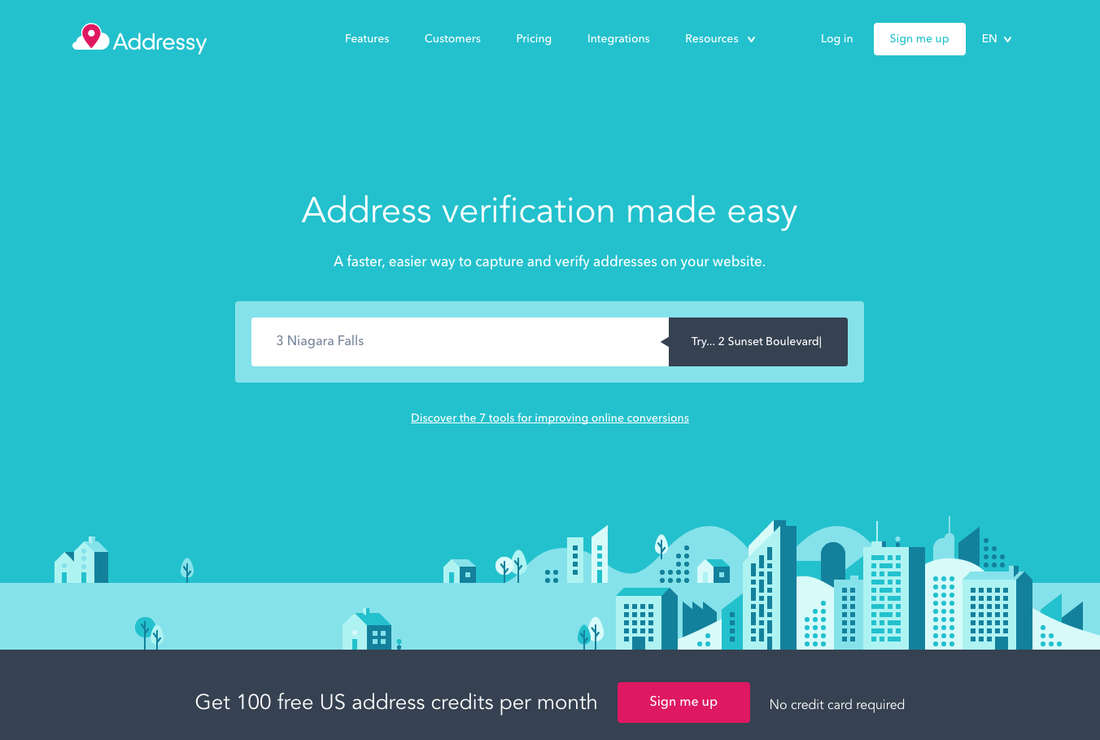How dirty data impacts your company’s finances – and reputation
Written by
Editorial TeamPublished on

As discovered in a recent study by Addressy, almost 20% of failed deliveries are due to inaccurate delivery address details provided by customers. In this interview, Chris Boaz, Head of Marketing at Addressy, explains how keeping your data clean not only solves this issue, but also opens up new possibilities for your business. To find out more, you definitely won’t want to miss his upcoming talk at this year’s E-Commerce Berlin Expo 2018.
Paulina, Ecommerce Capitals: What does Addressy do? What type of problem do you solve?
Chris Boaz, Head of Marketing at Addressy: Addressy overcomes a key frustration in ecommerce checkouts by making it quicker and easier for consumers to enter their address. Our type-ahead technology auto-suggests as the user types, returning accurate delivery addresses that have been verified against official data sources including AZ Direct, Royal Mail and Eircode. This style of address verification works just like a search engine, and ensures every address is complete and accurate at the point of entry.
Address verification made easy – that’s Addressy’s motto. When and why did address verification become so important?
Ensuring customer data is complete and accurate has always been important. Address verification, which ensures accurate address data, is a crucial ingredient to successfully on-boarding new customers and maintain relationships with existing customers. It became more important, when executives started making decisions based on their data. Who wants to make a decision based on unreliable data? Today, address verification means more than just clean data bases. Retailers need clean and verified data in order to avoid failed deliveries, increase conversion rates and improve customer experience.
Let’s say I have an online shop with a database of 200,000 registered customers. How can I use Addressy to verify their addresses?
You can verify the 200,000 customer records you already have in your database and ensure all your records are accurate. But Addressy is more than an address cleansing tool. There is a simple rule called the 1-10-100 rule that can be used when considering dirty data. It suggests that it is cheaper to validate an address at the point of capture than it is to try and solve the problem of dirty data further down the line. To reduce the costs of a single record, improve the user experience in your checkout process and make sure deliveries arrive on time, we suggest implementing type-ahead address verification. Addressy’s type-ahead address verification tools ensures that users are able to enter their address data quickly and easily, and guarantees that the address data you capture is valid.

What legal implications does it have? All in all, I should not disclose the address data of my customers to any third-party entities. Neither can I decide which of the addresses is the right one in case it turns out that my customer added an address that you’ve verified negatively?
Good question. This is Addressy’s main purpose. If your customer has already quit your store and you then notice an incorrect address, you cannot get back to the customer to ask for the correct one. Annoying pop up messages such as “Your address is invalid. Do you mean one of the following?” are not very user-friendly. However, with Addressy, when your customer starts to type their address, they get immediate suggestions based on their input. When the right address pops up in the drop-down suggestion list, they simply click on the right one and the whole form is auto-completed with accurate details. This way you ensure you have captured the right address in the checkout process and there is no manual work left for you to do.
To answer the second part of your question there are no special legal implications for you. Addressy verifies if an address exists through official address databases we have licensed from official data sources. As we don’t check if this person really lives there, it’s not a data record which needs special protection. You don’t give privacy data to us as a third party; we only check data that is publicly available.
You have an impressive and a very diverse portfolio of customers. There’s Durex, Asos, Disney, Virgin, Dow Jones, TripAdvisor, and many others (click here for a list). How do they use your products?
Most of our customers use our service in their checkout process, online forms or booking process. It is seamlessly integrated into their website and gives their users a great user experience.

Photo Credits to Sumall
You are soon going to release a global report on the impact of poor customer data and its costly influence on online retail. Why did you decide to research this topic?
Many retailers still don’t understand the true cost of dirty data – both from a financial and a reputational point of view. Retailers often underestimate just how much this affects their business – and their customers.
We often hear from our customers about how much they have improved since implementing Addressy, and this inspired us to find out exactly how much poor data quality really costs businesses.
On your website you mention that this study will comprise data from over 300 retailers and 2,000 online customers across the US, UK and Germany. Why did you choose customers from these three markets? Are they in any way representative of the “online customer” in general? Or perhaps they rather show differences between these three countries?
We have offices in all three of these locations, so it seemed like the obvious choice. However, we were also particularly interested in these areas as each has its own address format and uses address details in different ways. This meant we could combine our local knowledge with customers’ and retailers’ opinions to get a much broader view.
Also, according to Statista, the US, UK and Germany all rank within the top 5 ecommerce markets in the world. Therefore, a representative example of consumers could be gained from completing the study across these areas.
I’m quite confident this report will have a lot of telling examples and case studies. Can you share something with our readers now? Even one example will definitely stir up a lot of interest in the final report file!
A really surprising result is, that 1 in every 20 online orders is not delivered on the first attempt. With this in mind, it’s alarming for retailers that 78% of consumers expect the retailer to resolve a delivery issue, whether it’s the retailer or the courier that’s at fault. And almost 20% of failed deliveries are due to inaccurate delivery address details proved by customers which can be avoided at all.

Photo Credits to Addressy
On the 15th of February 2018 Addressy will appear on stage at the E-commerce Berlin Expo. What are you going to talk about?
I will discuss our research in more detail and highlight the importance of data quality for retailers. I will also cover user experience, what customers prefer and what retailers can do to make customers happy. All of the results are based on the findings from two Addressy studies.
Why did you choose this specific topic for this specific event?
The E-commerce Berlin Expo event covers many interesting ecommerce-related topics, and we felt that it would be a great place to discuss the impact of dirty data on retail businesses. As the whole event focuses on ecommerce, the audience should have an interest in statistics and facts surrounding data quality, user experience, cost management and customer satisfaction.
What do you want your audience to learn from your talk?
We want to give the audience a much greater insight into the meaning of data quality. Many people know that it is important for their business but perhaps don’t really understand why. Retailers often struggle with problems related to data quality and address accuracy but this is not visible at first glance. We want to help retailers discover more about data quality and how it really affects their business.

Chris is the head of marketing for innovative address validation company, Addressy. Addressy overcomes a key frustration in ecommerce checkouts by making it quicker and easier for users to enter their address. From the team behind PCA Predict, the leading provider of address verification technology in the UK, Addressy combines industry-leading predictive technology with an unmatched user experience—eliminating key frustrations and saving businesses and customers money and time.


